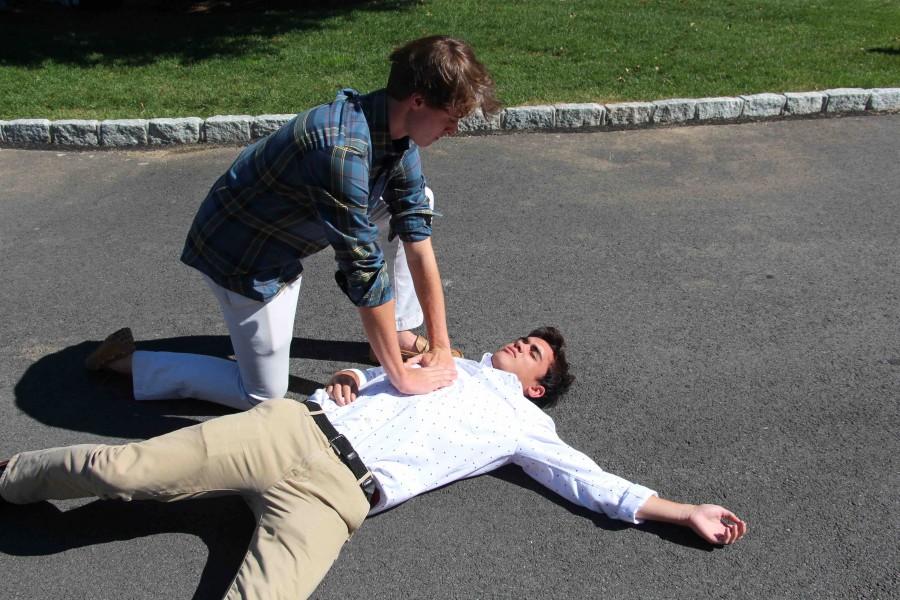Hackley Institutes New CPR Course
Credit: Nick Rizzi
Junior Jackson Corrigan simulates CPR resuscitation techniques on junior Sam Rinzler.
October 23, 2015
Only 30% of Americans have the skills to possibly save the person’s life in a cardiac emergency. Hackley is trying to help raise this percentage by starting a new program to teach its students CPR. The CPR teaching program was kicked off this fall at the freshman orientation by the freshman class, with the peer advisors watching and supervising. However, this program was met with a mixed reaction from the students who participated.
Through the program, led by a volunteer from the Tarrytown Fire Department who asked the students to call him “Mr. Fireman,” freshmen learned how to perform CPR on dummies. Students learned hands- only CPR, which involves chest compressions only, without mouth-to-mouth rescue breathing; this does not qualify students for Red Cross certification.
Chris Arnold, Director of Student Life and one of the leaders of the program, said it “seemed like a neat thing to do. It was a fun social activity with great value.” Mr. Arnold plans on extending the CPR class to the entire school.
The program is an excellent idea on paper, but the opinions of the freshmen and the junior peer advisors varied. Many thought that the CPR class was a waste of time because people in their group did not take it seriously.
“Everybody [in my group] thought it was a joke,” said freshman Karina Bridger. Others thought that learning the hands-only method was not as useful, and would rather have learned full CPR. The most common complaint however, was that the program did not provide them with an official Red Cross CPR certification.
Other freshmen disagreed. They believe that learning limited CPR skills was a help- ful and interesting activity. Many of the peer advisors, like juniors Camille Butterfield and Morgan Zepf, said that the class was “really helpful” and taught them valuable skills that could save someone’s life.

